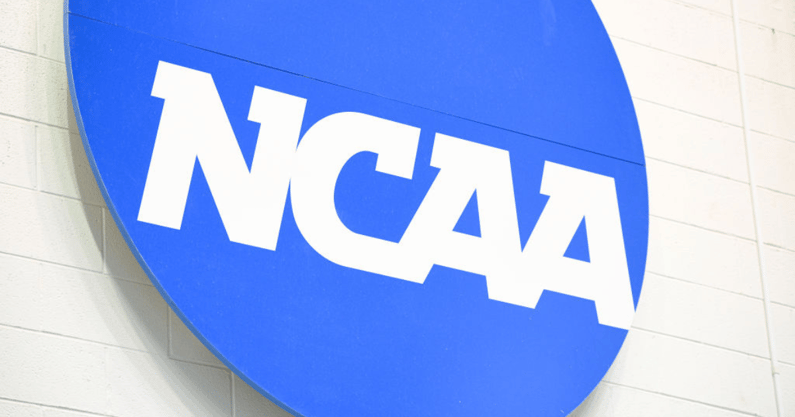ESPN insider says conference realignment in 'collective pause,' reveals potential next trigger

All seems quiet on the conference realignment front right now. That’s because people around college football are wondering what the next “trigger” will be, according to ESPN’s Pete Thamel.
Thamel appeared on College Football Live with Wendi Nix to discuss the state of realignment and said things appear to be in a holding pattern right now. He also provided a timeline on a potential decision from Notre Dame, which is largely seen as the biggest fish in the pond as conferences expand.
Basically, he doesn’t think anything’s happening soon.
“In the micro micro, I think we’re at a collective pause here,” Thamel said. “When I talk to sources around the country — different conferences, different schools — everyone’s wondering what is the next trigger? What is the next mile marker that could lead to more expansion? Right now, the Big Ten and SEC appear to be sitting pat at 16.
“Notre Dame is obviously the prettiest date on the dance floor, but they probably have two years until they have to make any decision because their TV deal has four years left and they need to see what happens with the College Football Playoff, and that also has four years left. So there’s no imminent rush for Notre Dame because the levers that they need to pull to move conferences aren’t going to be pulled in the near term.”
Top 10
- 1Hot
Florida Hot Board
Lane Kiffin & more names to know
- 2Breaking
Jay Norvell fired
Second head coach fired today
- 3New
AP Poll
Massive shakeup in Top 25
- 4
Billy Napier
Florida fires head coach
- 5Trending
Coaching Carousel
Hot seat intel
Get the Daily On3 Newsletter in your inbox every morning
By clicking "Subscribe to Newsletter", I agree to On3's Privacy Notice, Terms, and use of my personal information described therein.
ESPN’s Pete Thamel on what’s next for Pac-12 media rights negotiations
Media rights deals have become a big topic surrounding realignment, especially with the Pac-12. The league suffered two huge hits when USC and UCLA announced their pending departures for the Big Ten in 2024 and, less than a week later, authorized immediate negotiations.
But the Big Ten’s deal could impact the Pac-12’s agreement, according to Thamel. That deal was expected to top $1 billion before USC and UCLA’s additions, and the ripple effect could trickle down to the Pac-12.
“So what’s next? The Pac-12 has a 30-day negotiating window that it’s in,” Thamel said. “And then, we look at what happens with the Big Ten … what networks don’t get in the B rights for the Big Ten may free up some extra money to see where it gets distributed to the other conferences.”